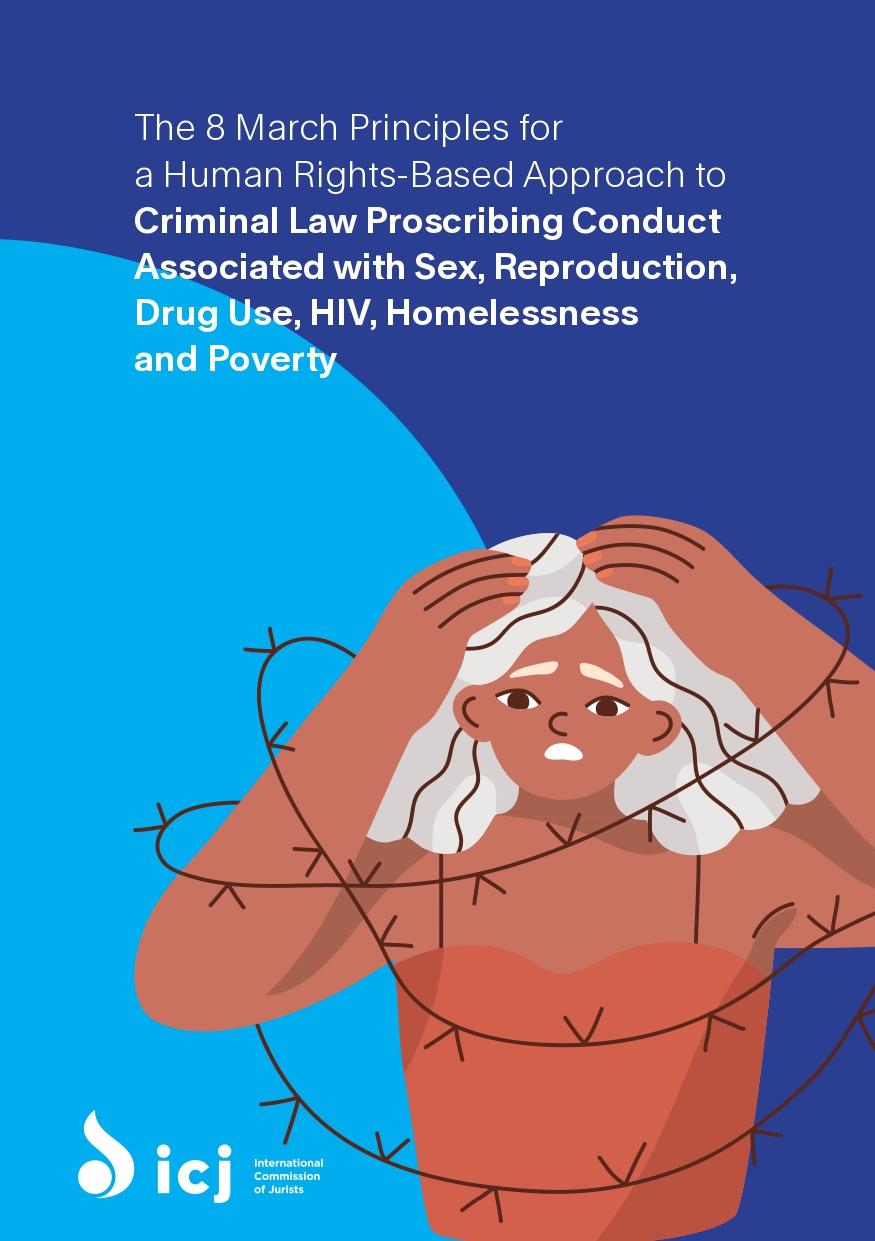The 8 March Principles for a Human Rights-Based Approach to Criminal Law Proscribing Conduct Associated with Sex, Reproduction, Drug Use, HIV, Homelessness and Poverty
On International Women’s Day, the International Commission of Jurists (ICJ) launched a new set of legal principles elaborated by jurists for a human rights-based approach to criminal laws proscribing conduct associated with sex, reproduction, drug use, HIV, homelessness and poverty.
The ICJ Decriminalisation Principles are now available, after an intense five-year consultative process with OHCHR, UNAIDS, and NGOs and jurists from around the world working on the forefront of these issues. The principles are of particular use to advocates, judges, lawmakers and others working across these topics.
About The Principles
The unjustified criminalisation of individuals and sometimes entire communities, including already marginalised or disadvantaged groups, is increasingly impeding progress in advancing human rights in many areas, including: racial and gender equality; reproductive autonomy; disability; economic justice; civil liberties; sexual orientation; gender identity; education’ youth development; and public health. With this in mind, the Principles were elaborated aiming to respond to growing trends of overcriminalisation and seek to offer guidance on the application of criminal law in a way that upholds human rights.
In a 2018 meeting convened by the International Commission of Jurists (ICJ) – together with the Join UN Programme on HIV/AIDs (UNAIDS) and the Office of the High Commissioner for Human Rights – experts discussed the role of jurists in addressing the harmful human rights impact of criminal laws proscribing sexual and reproductive health and rights, consensual health activity, gender identity, gender expression, HIV non-disclosure, exposure and transmission, and drug use and possession of drugs for personal use.
This convening endorsed the call by civil society and other stakeholders for the elaboration of a set of jurists’ principles to assist legislatures, the courts, administrative and prosecutorial authorities and advocates to address the detrimental human rights impact of criminalisation in the above-mentioned areas. Subsequently, the need for such a set of principles to also address the criminalisation of conduct associated with homelessness and poverty was identified. Following this initial expert meeting, the ICJ produced successive drafts of the Principles, unti a wide range of expert jurists, academics, legal practitioners, human rights defenders and various civil society organisations across the world reviewed and eventually endorsed the 8 March Principles for Human-Rights Based Approach to Criminal Law Proscribing Conduct Associated with Sex, reproduction, Drug Use, HIV, Homelessness and Poverty.
